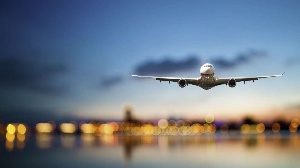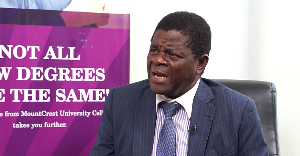Migrants are to start being detained within weeks in preparation for the first flights taking off to Rwanda, the Home Office has said.
It comes after the Guardian reported people would start to be transferred to detention centres on Monday.
In response, the Home Office said the government was "entering the final phase" of operationalising the policy.
Glasgow-based human rights lawyer Aamer Anwar said he had been told detentions would begin on Monday.
He said he expected to "see an explosion of the spirit of Kenmure Street across the UK" in the coming days—a reference to protests on a street in Glasgow in 2021 where hundreds of people blocked an immigration van to prevent asylum seekers from being removed.
Prime Minister Rishi Sunak has said the first flight should take off in 10 to 12 weeks.
A Home Office spokesperson said at some stage, preparations would "inevitably" include detaining people.
"It would be inappropriate to comment further on operational activity," the spokesperson added.
According to the Guardian, officials plan to hold up asylum seekers who turn up for routine meetings at immigration service offices and will also pick people up nationwide in a major two-week exercise. These people would then be transferred to detention centres.
These details have not been confirmed by the BBC.
The policy, which would see some asylum seekers sent to Rwanda, seeks to deter people from crossing the Channel in small boats.
Some 359 migrants were detected making the dangerous crossing on Saturday, according to Home Office figures.
In response to the report in the Guardian, Sonya Sceats, chief executive of the charity Freedom from Torture, told the BBC: "Make no mistake, this latest attack on refugees by this government will further traumatise people who have fled from torture chambers seeking safety and a chance to rebuild their lives in the UK.
"We know from our clinical services that even survivors of torture who are completely safe from harm tend to live in a semi-permanent state of hypervigilance to threats because of their history of being rounded up, detained, and abused in authoritarian states. So news of this crackdown is sure to trigger mental health collapse in many men, women, and children in the care of our therapists."
The Safety of Rwanda Act, which aims to avoid further legal challenges to the policy by declaring Rwanda a safe country, was approved by MPs and peers this week and passed into law on Thursday.
However, the plan could still be held up by court challenges.
Meanwhile, Mr. Sunak has said claims the Rwanda plan is causing an increase in migrants to Ireland show it is already having a deterrent effect.
Earlier this week, Irish Deputy Prime Minister Micheál Martin said there had been an increase in the number of people crossing the border from Northern Ireland into the Republic, partly because people were "fearful" of staying in the UK as they could be sent to Rwanda.
In an interview with Sky News' Sunday Morning with Trevor Phillips, Mr. Sunak was asked about the comments and challenged over whether the UK was simply exporting the problem.
The prime minister said, "My focus is on the United Kingdom and securing our borders.
"But what that comment illustrates is a couple of things.
"One, that illegal migration is a global challenge, which is why you're seeing multiple countries talk about doing third country partnerships, looking at novel ways to solve this problem, and I believe will follow where the UK has led.
"But what it also shows, I think, is that the deterrent is, according to your comment, already having an impact because people are worried about coming here, and that demonstrates exactly what I'm saying.
"If people come to our country illegally but know that they won't be able to stay, they're much less likely to come, and that's why the Rwanda scheme is so important."
On Friday, Downing Street said it was "too early to jump to specific conclusions" about the impact of the policy on migrant behaviour.
Africa News of Sunday, 28 April 2024
Source: bbc.com

















